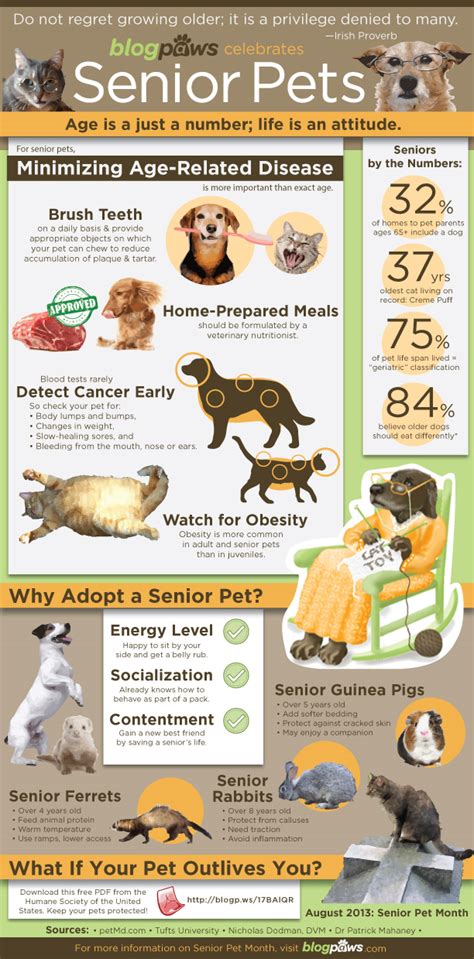Introduction:

As pet ownership continues to rise globally, the importance of understanding and addressing the health needs of aging pets becomes increasingly paramount. Pets are not just animals; they are beloved companions that play a significant role in our lives. As they age, their health and well-being require special attention to ensure their optimal comfort and longevity.
1. Aging Trends and Challenges
According to the American Pet Products Association (APPA), by 2025, there will be an estimated 90.5 million dogs and 94.2 million cats as pets in the United States alone. This represents a rapidly growing population of aging animals that require specialized care.
Aging pets face unique health challenges due to physiological changes and increased susceptibility to diseases. Common age-related issues include:
- Arthritis and joint pain: Stiffness and pain in the joints, especially in larger breeds.
- Dental disease: Plaque and calculus buildup, leading to gingivitis and periodontitis.
- Cognitive dysfunction: Memory loss, disorientation, and behavioral changes.
- Cardiac disease: Heart murmurs, arrhythmias, and congestive heart failure.
- Cancer: Various types of cancer are more common in older pets.
2. Importance of Preventive Care
Preventive care plays a crucial role in managing the health of aging pets. Regular veterinary checkups, vaccinations, and screenings can help detect and address health issues early on, before they become severe.
Key Preventive Measures:
- Vaccinations: Protect pets from infectious diseases, such as rabies, distemper, and parvovirus.
- Regular checkups: Allow veterinarians to assess overall health, screen for diseases, and provide early interventions.
- Dental care: Prevent dental disease through regular brushing, teeth cleaning, and dental chews.
- Weight management: Maintain a healthy weight to reduce stress on joints and prevent obesity-related health problems.
- Exercise: Encourage moderate exercise to maintain mobility and prevent joint stiffness.
3. Nutrition and Diet
Nutrition is essential for the health and well-being of aging pets. A balanced diet tailored to their specific needs can support their immune system, maintain healthy weight, and prevent age-related health issues.
Dietary Considerations:
- High-quality protein: Essential for muscle maintenance and repair.
- Fiber: Regulates digestion and prevents constipation.
- Omega-3 fatty acids: Reduce inflammation and support heart health.
- Antioxidants: Protect cells from damage caused by free radicals.
- Adequate hydration: Ensure pets have access to fresh water at all times.
4. Comfort and Environment
As pets age, their comfort and environment become increasingly important. Modifications to their surroundings can help reduce stress and improve their overall well-being.
Comfort Measures:
- Soft and supportive bedding: Provide comfortable and pain-relieving beds and ramps.
- Elevated food and water bowls: Ease joint pain and improve digestion.
- Slip-resistant flooring: Prevent falls and accidents.
- Sensory stimulation: Offer toys, puzzles, and interactive games to maintain cognitive function.
- Avoid loud noises and crowds: Create a calm and stress-free environment.
5. End-of-Life Care
Addressing the end of life for aging pets is a sensitive and challenging aspect of pet care. It is essential to provide comfort, dignity, and support to both pets and their owners during this difficult time.
End-of-Life Considerations:
- Hospice care: Provides supportive care and pain management for pets with terminal illnesses.
- Euthanasia: May be considered when a pet’s quality of life has significantly deteriorated and there are no more viable treatment options.
- Grief support: Offer resources and support to grieving pet owners.
Conclusion:
The health and well-being of aging pets require a comprehensive approach involving preventive care, nutrition, comfort, and end-of-life care. By understanding the challenges and needs of aging animals, pet owners can play a vital role in ensuring their beloved companions live long, healthy, and fulfilling lives.
Table 1: Common Age-Related Health Issues in Pets
| Condition | Symptoms | Treatment |
|---|---|---|
| Arthritis | Stiffness, pain, lameness | Pain relievers, joint supplements, weight management |
| Dental disease | Plaque, gingivitis, periodontitis | Dental cleaning, antibiotics, pain management |
| Cognitive dysfunction | Memory loss, disorientation, behavioral changes | Behavioral therapy, medication, environmental enrichment |
| Cardiac disease | Heart murmurs, arrhythmias, congestive heart failure | Medication, lifestyle modifications, diet |
| Cancer | Variable, depending on type | Surgery, radiation therapy, chemotherapy, pain management |
Table 2: Preventive Care Measures for Aging Pets
| Measure | Frequency | Benefits |
|---|---|---|
| Vaccinations | Yearly or as recommended by veterinarian | Protects against infectious diseases |
| Regular checkups | Every 6 months to 1 year | Detects and addresses health issues early on |
| Dental care | Every 6 months or as needed | Prevents dental disease and improves overall health |
| Weight management | Monitor weight regularly | Reduces stress on joints, prevents obesity-related health problems |
| Exercise | Moderate exercise daily | Maintains mobility, prevents joint stiffness |
Table 3: Nutritional Considerations for Aging Pets
| Nutrient | Importance | Sources |
|---|---|---|
| High-quality protein | Muscle maintenance and repair | Lean meats, poultry, fish |
| Fiber | Regulates digestion | Brown rice, vegetables, fruits |
| Omega-3 fatty acids | Reduces inflammation, supports heart health | Fish oil, flaxseed, chia seeds |
| Antioxidants | Protects cells from damage | Fruits, vegetables, vitamin supplements |
| Adequate hydration | Essential for all bodily functions | Fresh water available at all times |
Table 4: Comfort and Environment Modifications for Aging Pets
| Modification | Benefits |
|---|---|
| Soft and supportive bedding | Relieves joint pain, provides comfort |
| Elevated food and water bowls | Eases joint pain, improves digestion |
| Slip-resistant flooring | Prevents falls and accidents |
| Sensory stimulation | Maintains cognitive function, reduces boredom |
| Avoid loud noises and crowds | Creates a calm and stress-free environment |





















